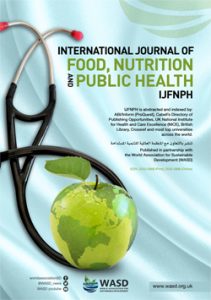(04) Food safety and water sanitation and hygiene among food insecure households: the case of Woreda 10 of Arada sub-city, Addis Ababa, Ethiopia, Gashaw Alemayehu, Dr. Dilu Shaleka, Prof. Mogessie Ashenafi
 Gashaw Alemayehu
Gashaw Alemayehu
Center for Food Security Studies, College of Development Studies, Addis Ababa University
Ethiopia
Email: gashalex2@gmail.com*
Dr. Dilu Shaleka
Center for Gender Studies, College of Development Studies, Addis Ababa University
Ethiopia
Email: dilu.shaleka@aau.edu.et
Prof. Mogessie Ashenafi
Center for Food Security Studies, College of Development Studies, Addis Ababa University
Ethiopia
Email: mogessie.ashenafi@aau.edu.et
Purpose: Appropriate knowledge, attitude and practices (KAP) of food safety and water sanitation and hygiene (WASH) enable households to prevent food- and water-borne illnesses, thereby contributing to a better food security status, for which access to safe food is an essential requisite. The objective of
this study was to investigate the food insecurity status and KAP of food safety and WASH in randomly selected households in the study area.
Design: A cross-sectional study on food security status, and KAP of food safety and WASH among households was conducted. Both qualitative and quantitative data were collected from a total of 351 randomly selected households found in Woreda 10. Data were analysed using STATA for Windows
version 14.2. Household food insecurity access scale (HIFAS), food safety KAP and WASH KAP were analysed using descriptive statistics.
Findings: About 89% of households (n=351) had a low monthly income. HFIAS indicated that only 23% of the studied households were food secure; the rest were mildly (44.8%), moderately (25.4%), or severely (6.8%) food insecure. Average knowledge, attitude and practice in food safety were 57.1%,
86.6% and 37.6%, respectively. Study households had poor knowledge (20%) about the signs of safe water, and the reasons and prevention of diarrhoea, positive attitude towards measures in WASH (54%), and good WASH practices including waste management (63%).
Value: The findings of this study bring to the forefront the need to consider food and water safety issues in addressing food security in a country. As the ultimate goal of food security is to lead an active and healthy life, ensuring food and water safety in households, together with making nutritious food available, is, therefore, of great importance.
Keywords: Knowledge, Attitude, Practice, Food Safety, Food Security, WASH.

